California Veterans and the Push for Healing
Joe Hudak, a U.S. Army Special Forces vet, once described PTSD as “a screaming roommate living in my skull 24/7—except I can’t evict it.” Sound familiar? For years, he bounced between antidepressants and therapy with no luck. Then came psychedelic therapy. That’ll be the focus here, but we’re not just talking to vets. If you’re someone trapped in loops of trauma, anxiety, or numbness, this one’s for you, too. Let’s cut the fluff and get to the good stuff.
The Real Deal on Psychedelic Therapy
Look, this isn’t about tripping balls and suddenly “figuring out life.” Psychedelic therapy is structured, science-backed care with drugs like MDMA or psilocybin (magic mushrooms), as studied by the National Center for PTSD. Basically? A therapist guides you through the experience while the drugs help your brain revisit and reprocess trauma without the usual fight-or-flight panic. Think of it like hitting “rewind” on a broken VHS tape, but with a pro holding the remote.
How’s this different from traditional talk therapy?
Traditional PTSD treatments—like Cognitive Processing Therapy (CPT) or Eye Movement Desensitization and Reprocessing (EMDR)—ask you to stare the trauma head-on. For many, that’s retraumatizing. Psychedelics? They’re more like a gentle magnifying glass. For example, MDMA boosts oxytocin and quiets the amygdala (your brain’s alarm bell center), letting you unpack memories without getting blindsided by anxiety Johns Hopkins research explains.
What drugs are we even talking about here?
So far, the big three are:
- MDMA (yes, that Molly): 70%+ clinical trial success rate for PTSD.
- Psilocybin (magic mushrooms): Best for anxiety-related trauma spirals.
- Ketamine: Off-label, fast-acting, great for breaking “emotional freezes.”
Got it. So what’s the actual process?
| Step | What Happens |
|---|---|
| Screening | Physical, mental history check. No-go if you’re manic or paranoid, per Pacific Neuroscience Institute’s 18+ guidelines. |
| Prep | No more binge-watching Netflix the night before. You’ll discuss set and setting—therapist, calm room, playlist. |
| Session | 6-8 hours. Drugs + therapist-guided talk. Think emotional deep-sea dive with a patient buddy. |
| Integration | Next 4–6 weeks re: processing revelations. Imagine talking to your therapist like a post-trip debrief with your bestie. |
Why California Veterans Are Fighting to Legalize This Faster
Picture 2025. Hundreds of vets still get lost in VA waitlists. Meanwhile, Dr. Bessel van der Kolk and groups like MAPS are shouting, “We’ve got tools that can help!” So California veterans are pushing to unchain access from bureaucracy. They’re not exactly reinventing the wheel—they know time is running out for some. Terrible irony: Suicide prevention, and alternative therapies are stalling in the DMV parking lot of red tape.
2025’s Research: The Good, the Bad, and the TBD
Alright, let’s cut to the stats. A 2025 review in Psychiatry Research gave psychedelics a thumbs-up for trauma, anxiety, and overcoming addiction, but stressed: protocols matter. Let’s talk turkey:
MDMA’s FDA Decision—What Happens Next?
As of July 2025, the FDA is “agonizing” over MDMA approval, likely approving it by fall (if you’ve followed van der Kolk, you’ll know he’s been on their case). If legalized, it could shift from Schedule 1 to prescription status through MAPS’ programs.
Wait, what about teens? Is this being tested on younger folks?
Damn good question. Studies are starting to explore MDMA for PTSD in 14–17-year-olds, though cautious because … hey, teenage brains are still under construction. But don’t worry—to set limits or wait until their late 20s? Lock that in if you’re curious about teens. Meanwhile, adults (18+) might gain access for alternative therapies sooner than expected.
Weighing Risks and Benefits
Let’s level with each other: no panacea here. Psychedelic therapy works for some where typical care flops. But it dates back decades, and that black cloud stigma still follows folks. Here’s the mic drop:
Does this actually help, or is it just hype?
- Benefits: Some studies show over 75% of participants report relief lasting a year or more van der Kolk’s TED on trauma and psychedelics is a goldmine.
- Risks: Not a solo car ride. Bad trips? They’re not fictional, though rare. If bipolar or on antidepressants, talk first. Expert safety protocols from organizations like MAPs make all the difference.
Can I trust this? Who’s vouching?
Enter MD Bessel van der Kolk, one of the leading loudest advocates in trauma treatment. He’s been in this since the 70s, swears integration is key—it shouldn’t throw your life sideways. You could quote him in your group chat and not get met with eye-rolls or gasps: “Wings aren’t free yet, but we can’t build cages around breakthroughs forever.”
Accessing Therapy: Legal Insights
Here’s the realness: No red-flag walkthrough. Psychedelic therapy is shifting quick, but not everywhere. Locations you can explore:
| Location | Legal Status | Who’s Eligible? |
|---|---|---|
| Oregon | Psilocybin legal (facilitator-only use). | Adults 18+ with preparation. |
| MAPS-sponsored Trials | R&D phase; Schedule 1 compounds (MDMA allowed mid-study). | Vets often prioritized; see MAPS’ enrollment listed sites. |
| Privately Funded Ketamine Clinics | Techically permitted under specific treatment umbrella say PNI docs. | Must be treatment-resistant and medically cleared. |
Inside a Psychedelic Therapy Session
Ever sat with someone and unloaded your worst memory? Now imagine doing it while your brain’s like, “Okay, fine, we’ll face this together.” That’s the vibe. Sessions include:
- Therapist guidance: Not just a music playlist clicker. They’ll hold space, talk about polyvagal theory if you imagine yourself back there in the firestorm of trauma Columbia’s course}. “Anchor point maintenance live” touch therapy.
- Controlled dosage: Not recreational “magic mushrooms for sensational healing.” Think IV drips vs. tripwire beer for less mess.
- Two-way mirror scenes—except therapy cortex wires your brain to playlists of Leonard Cohen and whale songs for grounding.
Psychedelics Aren’t Magic Bullets
Let’s roast the hype here: if you blewfuses with every psych drug ever, this still isn’t your miracle-saving piece. But Bessel van der Kolk, the best-selling trauma guru, gets it: “MDMA lets trauma survivors change the narrative so they’re not stuck on loop.” Still—remember to follow tried practices. Like he’d say, avoid this if you get panicked with everyone tagging you “True Whisperer between worlds.” So keep grounded, but curious.
Training Outlook for Therapists
Got it. Sometimes people at Google feel if you teach on this wave, you wave goodbye to mainstream credibility. Not anymore. Programs like the IPI Year-Long Training (global brainbox MDs, including trauma aces) teach how to thread talking with psychedelics into somatic and other alternative therapies. Makes sense why PTSD centers are opening threads with public feedback.
Putting It All Together
Wanting help isn’t weakness; it’s brave exhaustion. We’ve outlined this brushfire urge: combat-ready men and women like Joe Hudak couldn’t stay silent, and research’s gaining steam by the day. Remember this isn’t a disrupt-or-die pitch—it’s a “your brain deserves this lane” argument. Psychedelics, together with grounded professional mentors, are pushing through the boundary wall false limitations. If you’re wrestling real treatment dystopias—or you know someone—let’s discuss now. Oh, and here’s a lil question for thought mirror moments: What part of your trauma could use a tender reprocessing? Drop your two cents below; can’t wait to enter the convo.




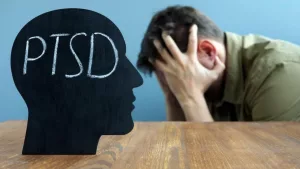



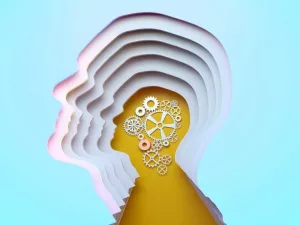
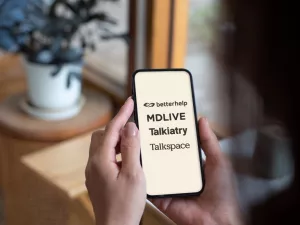
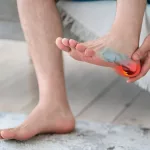



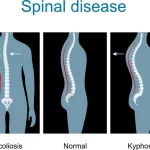
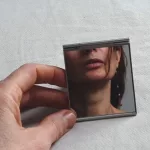


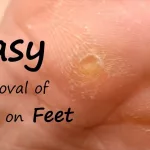






Leave a Reply
You must be logged in to post a comment.